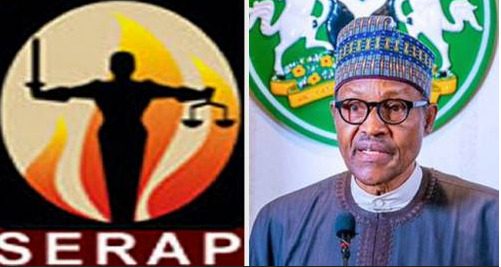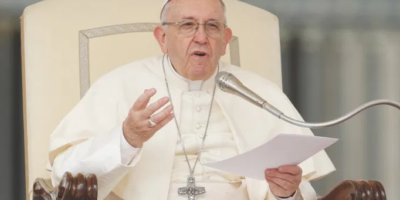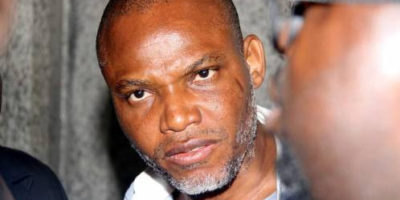Collapsed National Grid: SERAP Gives Buhari 7 Days To Probe Missing N11Trillion Electricity Fund

The Socio-Economic Rights and Accountability Project (SERAP) has given President Muhammadu Buhari seven days to order a probe into how N11 trillion meant to provide regular power supply in the country was mismanaged.
The organisation urged Buhari to direct the Attorney General of the Federation and Minister of Justice, Mr Abubakar Malami, SAN, and relevant anti-corruption agencies to investigate how the funds have been spent since 1999.
It said an estimated N20 trillion may be lost in the next decade
given the rate of
Government investment and funding in the power sector amidst dwindling fortune and recurrent revenue shortfalls.
The group said anyone suspected to be
responsible should face prosecution as appropriate, if there is sufficient admissible evidence, and any missing public funds should be traced and fully recovered.
This was disclosed in a statement on Sunday signed by Kolawole Oluwadare, SERAP’s Deputy Director.
Also according to the statement, SERAP urges the President to
refer to the International Criminal Court all unimplemented reports of corruption in the electricity sector gathering dust on the shelves, and to arrest and surrender those named in the reports to the court for prosecution.
SERAP’s letter followed the collapse of the national grid, which has plunged the country into total darkness. Generation capacity has dropped to 2,000 megawatts with about 14 power plants shutting down.
In the letter dated 19 March, 2022 and signed by Oluwadare, the organisation said:
Nigerians have for far too long been denied justice and the opportunity to get to the bottom of why they continue to pay the price for corruption in the electricity sector–staying in darkness, but still made to pay crazy electricity bills.
Investigating the allegations of missing N11 trillion electricity funds, prosecuting suspected perpetrators and recovering any missing public funds would end a culture of impunity. It would also address the persistent collapse of the electricity grid, and improve access to and affordability of electricity in the country,
it added.
The letter further read:
The situation will not improve unless you fulfil your campaign promises to probe corruption in the electricity sector, prosecute perpetrators, and recover any missing public funds.
Corruption in the electricity sector and the lack of transparency and accountability in the use of public funds to support the operations of DISCOS have resulted in regular blackouts, electricity grid collapse, and unlawful hike in electricity tariffs.
Corruption in the electricity sector has also continued to disproportionately affect the most disadvantaged and vulnerable sectors of the population who cannot readily afford expensive generators in order to have a reliable power supply.
Your government has constitutional and international obligations to ensure regular and uninterrupted supply of electricity, even in times of resource constraints.
SERAP urges you to urgently implement documented reports of cases of corruption in the electricity sector, and ensure full accountability and restitution.
We would be grateful if the recommended measures are taken within 7 days of the receipt and/or publication of this letter. If we have not heard from you by then, SERAP shall consider appropriate legal actions to compel your government to comply with our request in the public interest.
SERAP said the details of the missing N11 trillion electricity funds are contained in its report titled, ‘From Darkness to Darkness: How Nigerians are paying the Price for Corruption in the Electricity Sector.’
According to the report, the total estimated financial loss to Nigeria from corruption in the electricity sector starting from the return to democracy in 1999 to date is over N11 trillion. This represents public funds, private equity and social investment (or divestments) in the power sector.
The letter was copied to Mr Malami.

Justin Nwosu is the founder and publisher of Flavision. His core interest is in writing unbiased news about Nigeria in particular and Africa in general. He’s a strong adherent of investigative journalism, with a bent on exposing corruption, abuse of power and societal ills.













